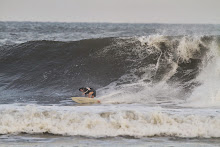
So, the Buccaneer Days, and lobster opening, and nasty-ass gale all marked the end of the first part of this sabbatical research. These interruptions allowed us to stop and take stock and think about all the possibilities that are no more. We’ve started to chisel away alternatives. Let's talk about what I mean.
Prior to coming here, we knew:
a. Almost no one we’ve heard of had ever seen a lobster attack a sea hare.
b. A trio of undergraduates witnessed two such attacks in the Wrigley Big Fisherman’s reserve two summers ago.
c. Starved lobsters will eat sea hares in the lab.
Our hypothesis, our best, most hopeful guess, was that lobsters in reserves, where they have been protected for at least several years, attack sea hares. They do this because their protected status means their greater biomass (more of them, and bigger individuals) in the shallow subtidal puts pressure on their food supply. Less food means hungrier lobsters. Hungrier lobsters eat species they would not otherwise touch (e.g., sea hares, but also sea urchins, and other defended invertebrates).
Note that this hypothesis is one of convenience. It is what we call “parsimonious. “ It most simply unites our two main observations, that starved lobsters in the lab and wild lobsters at fisherman’s cove perform an otherwise rare behavior of attacking sea hares. Parsimony feels good, but it only gets us so far. Until we start removing alternatives, we’ve only traveled down the science road a short way.
Let’s list some alternative possibilities, given the above observations:
a. The two observed attacks were an anomaly. Perhaps these inexperienced students “overinterpeted” their observations to please their professor.
b. Perhaps there is something about living in groups in caves that predispose lobsters to attack sea hares. Other divers would never present a sea hare to lobsters in a group. Instead they would try and catch the lobsters!
c. Lobsters attack only at Fisherman’s cove for some unnatural reason, e.g., the steady bright light on the pier alters lobster behavior.
d. Lobsters attack sea hares all over Catalina Island because its water is exceedingly clean.
e. The act of presenting sea hares to lobsters, usually you just drop them out of the water column onto the lobsters’ antennae, is irrelevant to how they encounter each other in nature.
I love to make lists of alternative hypotheses. A beautiful hypothesis is simply that, regardless if it is your pet or your alternative. I like b. above. If groups were key, that would be very interesting. Going that direction would be fun.
But I also DREAD lists of alternatives. You know why? Because my list is never complete. It’s like that game when someone writes a word you try to make as many words out of the letters as you can. There’s ALWAYS at least a word or two you didn’t get (you know this cause others playing the same letters get additional words every time). In science, you never know if you’ve missed a good idea. Your nightmare is that some colleague will raise an alternative that you missed, that is consistent with your data, and that turns out to be right!
Now, in my old age, I’ve actually come to see this nightmare as something of a comfort: Having colleagues out there, who actually listen hard to your crazy ideas and observations, and then bring their own experience to bear on the question, and politely give you a brilliant alternative hypothesis. This is one of the amazing moments of the scientific process. But it hurts, too. “Why didn’t I think of that?”
Ok, here’s an exercise. You all give me alternative hypotheses! Look at the three observations and invent an explanation.
Cmon, I bet you can do it. If you can write a limerick, or a Haiku, you can invent an innovative alternative. Humor is good. Actually ANY hypothesis is good. Everyone should invent one or two hypotheses a day. Most people invent many, many more.
So email me back (and I’ll post your hypotheses), or just post your hypotheses on the blog (please identify yourself so I can have some fun with it). I’ll check back in a day or so and compile the list!


No comments:
Post a Comment